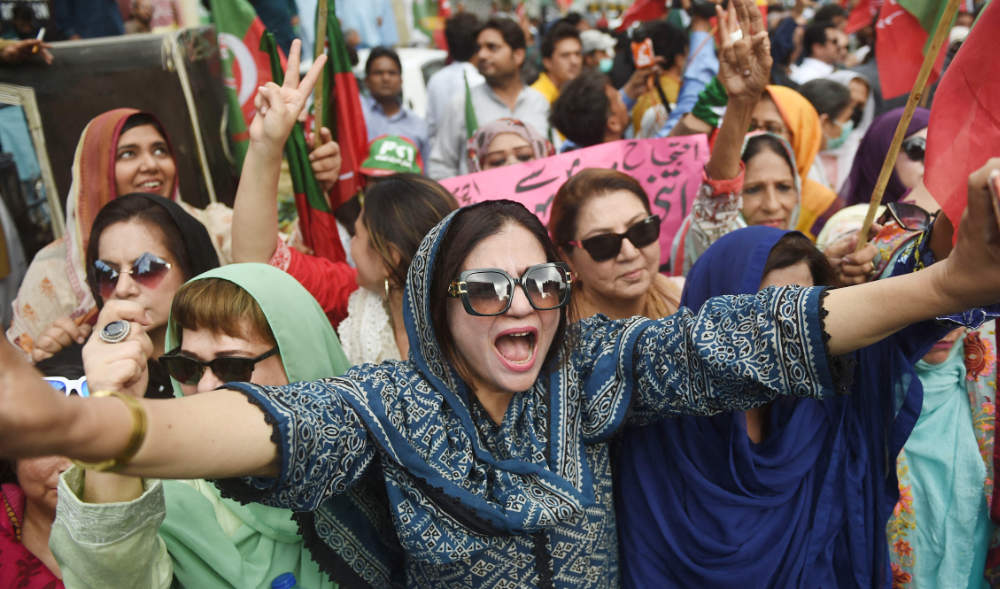KARACHI: New hikes in the prices of fuel and electricity are expected to cause an inflationary storm in Pakistan, industrialists and experts said on Friday, as the government slashed subsidies for a second time in a week to secure International Monetary Fund bailout money.
Pakistan entered a three-year IMF deal in 2019 but is struggling to implement tough policy commitments to revive the $6 billion program desperately needed to stabilize its struggling economy.
A pending tranche of over $900 million is contingent on a successful IMF review, and would also unlock other multilateral and bilateral funding for Pakistan, whose foreign reserves currently cover just two months’ worth of imports.
After the IMF pushed Islamabad to roll back its subsidies for the oil and power sectors during talks in Doha last week, the Finance Ministry raised fuel prices by around 20 percent, and within a week by another 17 percent effective from Friday.
The new petrol price is PKR209.86 ($1.06) per liter and diesel is PKR204.15 per liter. The fuel hikes, which come along with an increase in the basic power tariff by 47 percent announced by the National Electric Power Regulatory Authority a day earlier, have sent shockwaves among Pakistani industrialists who say many of them will be forced to close.
“The outcome of the tariff and fuel price hike would be determinantal for the industries as it would increase unemployment, drastically cut exports, and would increase inflation in the country,” Muhammad Idrees, president of the Karachi Chamber of Commerce and Industry, told Arab News.
“No one will think about setting up industries after the steps taken by the government, because it would render the business unviable, and industries will be eliminated in large numbers.”
The Pakistan Yarn Merchants Association called on the government to reverse its decisions to save the industry, especially small and medium-sized enterprises.
“The sharp rise in prices of petroleum products, excessive power tariff, and severe energy crisis are catastrophic for business and industry,” Saqib Naseem, the association’s chairman said in a statement.
The country’s inflation rate is expected to soar to 19 percent this month — its highest in over a decade.
“The direct impact of the fuel and power tariff hike would be on the Consumer Price Index, which will add 1.5 percent and 2 percent to the prevailing inflation rate,” Tahir Abbas, head of research at Arif Habib Limited, told Arab News.
“The combined inflationary impact of the fuel and electricity tariff, if the determined tariff is implemented, would be around 19 percent in June. There would be a second-round impact when the price hike of goods and services after the cost of input is increased.”
Uzair Younus, director of the Pakistan Initiative at the Washington-based think tank Atlantic Council, said the “inflationary storm” expected to hit the country in the coming days would “destroy purchasing power of ordinary households.”
And more hardships may be on the cards as there are more IMF requirements to meet.
“There is still about a 9-rupee subsidy on petrol and about 23-rupee subsidy on diesel. In addition, the government has to place a 17 percent sales tax and a 30-rupee levy, as agreed to with the IMF months ago,” Younus told Arab News.
“Assuming oil price stays the same and rupee doesn’t weaken further, we are looking at petrol touching about 285 rupees a liter.”
Pakistan’s equity market has already reacted to the latest developments, with the benchmark KSE 100 index declining by 923 points, or 2.2 percent, to close at 41,314.88 points on Friday.




